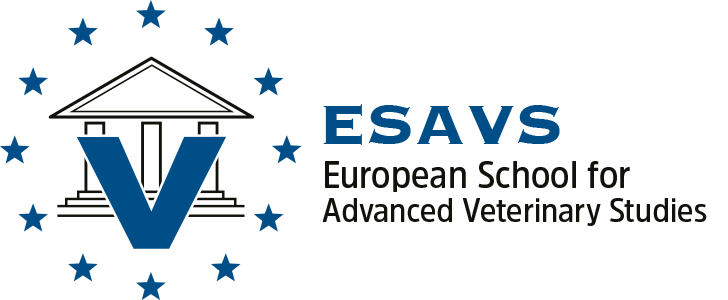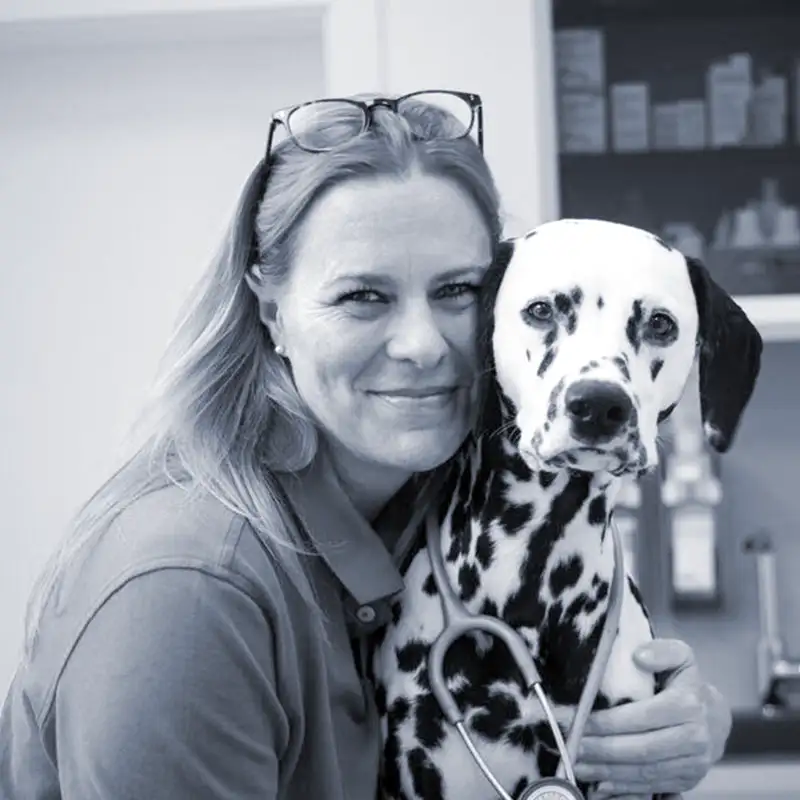European School for Advanced Veterinary Studies
ESAVS Free Webinars
Virtual Event
Overview:
Effective airway management is a cornerstone of safe anaesthesia in dogs and cats, yet it remains a frequent source of avoidable complications. This lecture focuses on common mistakes encountered during airway management in small animal anaesthesia and highlights practical, evidence-based strategies to prevent them. By addressing patient preparation, intubation, tube selection, and intra-anaesthetic monitoring, the session aims to improve patient safety, reduce perioperative risk, and support confident decision-making in everyday clinical practice.
Anaesthesia and Pain Management Webinar
Common mistakes with airway management during anaesthesia in cats and dogs and strategies to avoid them
Lecturer: Dr. Eva Eberspächer-Schweda
Overview:
Effective airway management is a cornerstone of safe anaesthesia in dogs and cats, yet it remains a frequent source of avoidable complications. This lecture focuses on common mistakes encountered during airway management in small animal anaesthesia and highlights practical, evidence-based strategies to prevent them. By addressing patient preparation, intubation, tube selection, and intra-anaesthetic monitoring, the session aims to improve patient safety, reduce perioperative risk, and support confident decision-making in everyday clinical practice.
Virtual Event
Overview:
This webinar showcases real clinical cases in which nutritional strategies were the decisive diagnostic or therapeutic step. Participants will explore how diet interacts with physiology, pathology, and treatment response, and learn to recognize scenarios in which nutrition is not an adjunct—but the key to resolution.
Learning Outcomes
By the end of this webinar, participants will be able to:
Identify clinical presentations where nutrition is often the missing diagnostic clue.
Integrate targeted nutritional interventions into case management plans.
Recognize early when a nutritional solution may outperform pharmacological or procedural interventions.
Communicate nutritional rationale effectively to pet owners.
Clinical Nutrition Webinar
The Missing Piece: Nutritional Interventions That Solved the Case
Lecturers: Dr. Irene Bruckner ; Dr. Stefanie Handl
Overview:
This webinar showcases real clinical cases in which nutritional strategies were the decisive diagnostic or therapeutic step. Participants will explore how diet interacts with physiology, pathology, and treatment response, and learn to recognize scenarios in which nutrition is not an adjunct—but the key to resolution.
Learning Outcomes
By the end of this webinar, participants will be able to:
Identify clinical presentations where nutrition is often the missing diagnostic clue.
Integrate targeted nutritional interventions into case management plans.
Recognize early when a nutritional solution may outperform pharmacological or procedural interventions.
Communicate nutritional rationale effectively to pet owners.
Virtual Event
Overview:
Young cat; severe anaemia; no money…. Do not give up that easily! A structured approach will help you identify essential diagnostic and therapeutic steps.
Feline Medicine Webinar
Anaemia – can be helped, even at low cost
Lecturer: Jennifer von Luckner, Dipl. ECVIM - CA
Overview:
Young cat; severe anaemia; no money…. Do not give up that easily! A structured approach will help you identify essential diagnostic and therapeutic steps.
Virtual Event
Overview:
Despite advances in reproductive management and perioperative care, neonatal mortality rates in dogs and cats remain high. This webinar will present the 2025 RECOVER newborn resuscitation guidelines and discuss traditional techniques and newer insights of neonatal resuscitation. We will discuss the benefit of effective ventilation as a cornerstone of successful resuscitation and the role of heart rate evaluation and cardiac compressions. A structured, algorithm-based, team-oriented approach is presented. By exploring both the foundational principles and the evolving evidence surrounding neonatal resuscitation in dogs and cats, this webinar will hopefully help clinicians to increase survival in non-breathing neonatal kittens and puppies.
Emergency and Critical Care Webinar
Neonatal Resuscitation in Kittens and Puppies
Lecturer: Dr. Nadja Sigrist
Overview:
Despite advances in reproductive management and perioperative care, neonatal mortality rates in dogs and cats remain high. This webinar will present the 2025 RECOVER newborn resuscitation guidelines and discuss traditional techniques and newer insights of neonatal resuscitation. We will discuss the benefit of effective ventilation as a cornerstone of successful resuscitation and the role of heart rate evaluation and cardiac compressions. A structured, algorithm-based, team-oriented approach is presented. By exploring both the foundational principles and the evolving evidence surrounding neonatal resuscitation in dogs and cats, this webinar will hopefully help clinicians to increase survival in non-breathing neonatal kittens and puppies.




